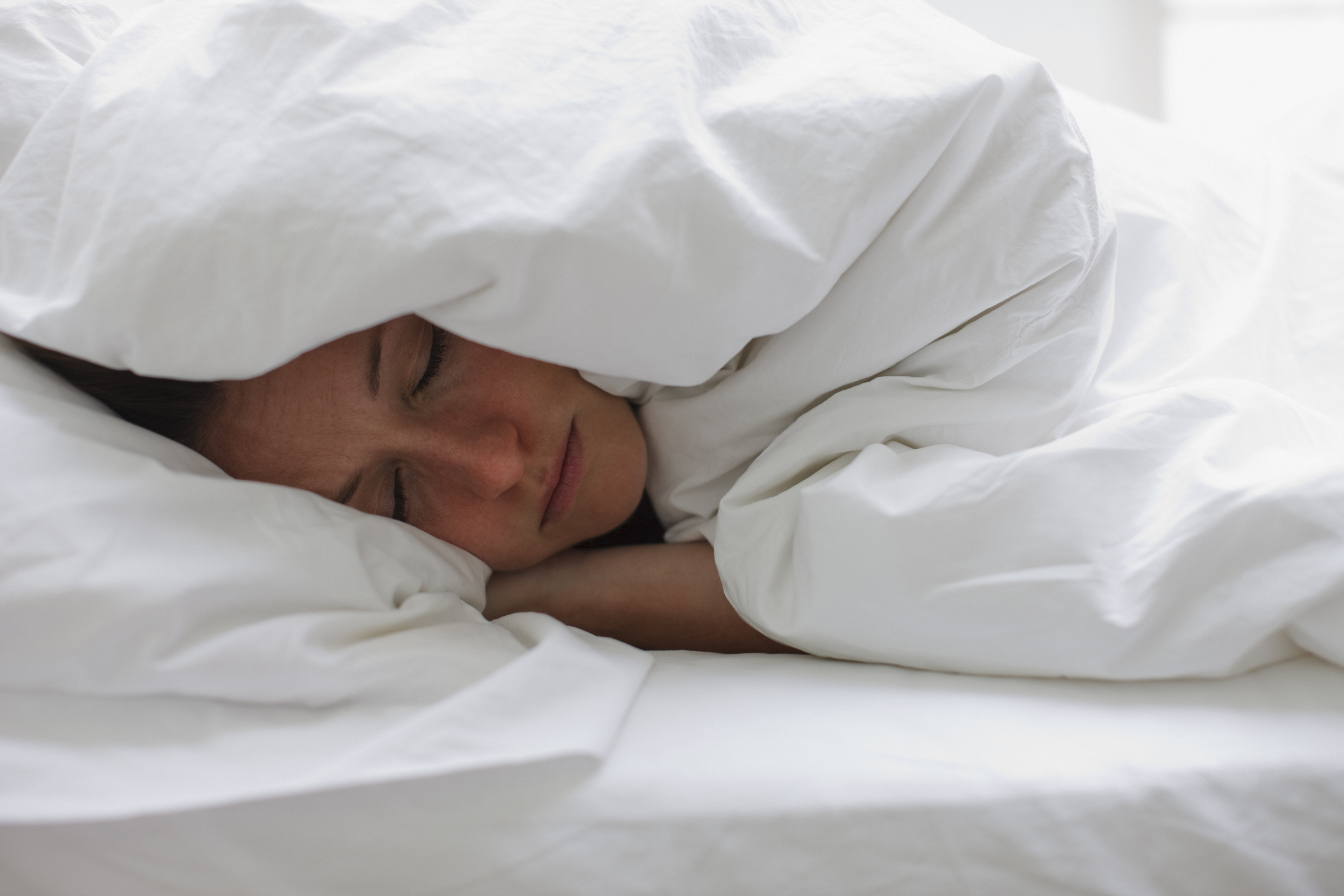How to sleep with a cold

How to sleep with a cold
Getting enough sleep each night is extremely important, but it can become a challenge when you’re suffering with a cold. A sore throat, a stuffy nose, sinus pressure and an irritating cough are just some of the symptoms that can come between you and a good night’s rest. So what can you do to maximise your chances of getting the slumber you need when you’re not feeling great?
How to sleep when you have a cold
The good news is, there are a number of ways you can relieve your symptoms so that you can sleep better. Keep reading to find out how you can sleep easy, even if you’re struggling with the common cold.
Drink warm honey and lemon juice
Sipping on a combination of honey and lemon juice is an all-natural remedy for relieving the symptoms of a cold[1]. Honey is effective in helping soothe a sore, irritated throat, while lemon juice is rich in immune-boosting vitamin C and antibacterial properties. Simply mix one tablespoon of lemon juice and two tablespoons of honey with a little hot water and enjoy this warming and comforting drink before you head to bed for a better night’s sleep.
Use a decongestant
A decongestant can provide effective, short-term relief from some of the tell-tale symptoms of a cold, such as nasal congestion and pressure across the forehead and around the eyes. This treatment works by reducing the swelling of the blood vessels inside your nose to help open up the airways and reduce pressure in the sinuses so that you can breathe more easily[2].
Decongestants are available in many different forms, such as nasal sprays, tablets and syrups, and you can purchase this treatment from any pharmacy. Usually, decongestants do not have any side effects. However, unless you opt for a non-drowsy version, you may find that you feel a little sleepy after taking this treatment, so you might find it works best if you take it ahead of bedtime.
Keep throat spray near your bed
A sore throat is a common symptom associated with a cold, causing you pain and discomfort. In fact, your throat might be so painful that you may find it difficult to drift off at night[3]. To prevent your sore throat from getting in the way of sleep, you could try using a throat spray.
Throat sprays often contain a small amount of local anaesthetic that not only soothes the area, but numbs the pain too. You should also find that a throat spray can help soothe a cough. Simply point the nozzle of the spray bottle at the back of your throat and press down as many times as it states in the leaflet information provided. It’s a good idea to keep a throat spray near your bed that you can reach for if your sore throat wakes you up throughout the night. It’s also possible to get flavoured throat sprays, making this treatment more pleasant to use.
Sleep with your head elevated
If you have a cold and lie down, mucus can start to build up in your throat which can make you cough. This may mean that you then struggle to get a good night’s rest, so it might be worth slightly tweaking your sleep setup. Simply stacking two pillows so that you’re able to rest your head at a slightly elevated angle can reduce the amount of mucus that builds up in your throat, helping you to snooze more soundly.
However, you may find this uncomfortable, which can keep you from getting a good night’s sleep. Instead, consider raising the whole head end of your bed to achieve a similar, less uncomfortable effect.
Use a humidifier
If the air in your bedroom is too dry, you may find that your cold symptoms get worse at night and seriously impact your ability to get the sleep you need, so positioning a humidifier in your bedroom could help[4]. A humidifier is a device that adds moisture to the air which can prevent your nose from drying out and soothe any stuffiness.
Avoid alcohol
While alcohol can actually make you feel sleepy, it’s best to avoid consuming it before bed, especially when you have a cold. Although a night cap might quench your thirst, drinking alcohol can lead to dehydration, making it more difficult for your body to fight off the illness and recover. Instead, you should drink plenty of water to stay hydrated.
Getting the rest you need while you’ve got a cold isn’t easy, but you should find that you’re able to sleep better by following these simple tips.
Resources:
[2] https://www.nhs.uk/conditions/decongestants/

